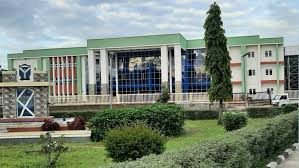Roche, an international pharmaceutical company, in collaboration with the National Health Insurance Authority (NHIA), has unveiled subsidized cancer medication at the University of Maiduguri Teaching Hospital (UMTH).
The announcement was made on Tuesday by Mr. Babarinde Olayode, Policy Lead at Roche International, during the official launch of the programme, which reduces the cost of cancer drugs by 80 per cent at UMTH.
Olayode explained that the initiative, designed and implemented in partnership with NHIA, aims to improve access to life-saving cancer treatment for patients enrolled under NHIA, by subsidising the cost of drugs.
He noted that the programme is currently running in 24 centres nationwide, including UMTH, allowing patients under health insurance to access quality cancer medication at just 20 per cent of the original cost.
“The opportunity for cancer patients today is that they can now access medication at only 20 per cent of the cost. Roche covers 50 per cent, NHIA provides 30 per cent, and the patient pays just 20 per cent. This is a subsidy and a form of financial protection for patients,” Olayode said.
The initiative targets breast, cervical, prostate, and other cancers, which account for a significant share of cancer-related deaths in Nigeria.
According to him, patients who are not enrolled in NHIA can still benefit from a 50 per cent subsidy provided by Roche, but will have to cover the remaining 50 per cent of the cost themselves.
Speaking on behalf of NHIA, Sa’adatu Abdulwahab, an Assistant Director, encouraged uninsured cancer patients to register under the Basic Healthcare Provision Fund in order to access the full 80 per cent subsidy.
Prof. Ahmed Ahidjo, Chief Medical Director of UMTH, commended Roche and NHIA for the initiative, describing it as a relief for cancer patients who often struggle with high treatment costs.
He, however, appealed to NHIA to extend similar support to other specialised areas of medicine, noting that UMTH has about eight specialist centres that also require attention.
Cancer remains a major public health challenge in Nigeria, with thousands of new cases recorded annually.


